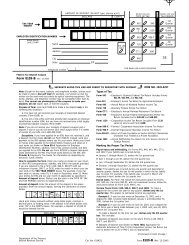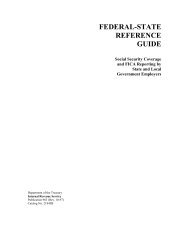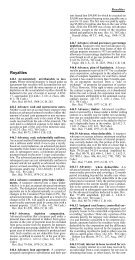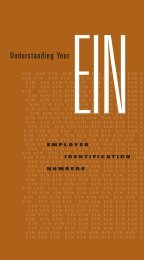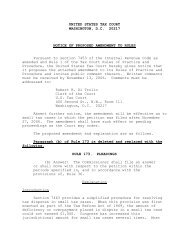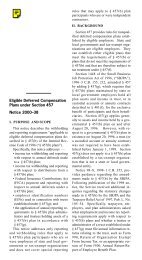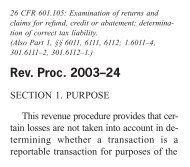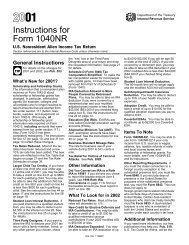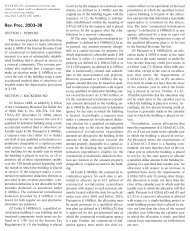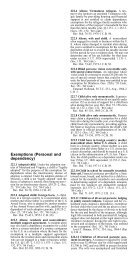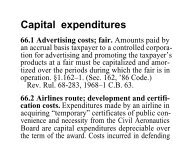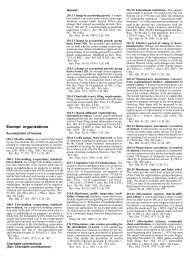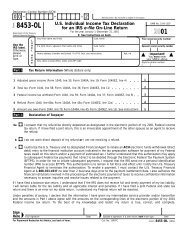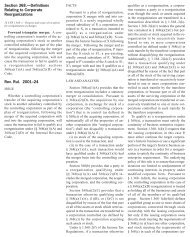Auto Dealerships - Audit Technique Guide - Uncle Fed's Tax*Board
Auto Dealerships - Audit Technique Guide - Uncle Fed's Tax*Board
Auto Dealerships - Audit Technique Guide - Uncle Fed's Tax*Board
You also want an ePaper? Increase the reach of your titles
YUMPU automatically turns print PDFs into web optimized ePapers that Google loves.
Example 1<br />
Fast <strong>Auto</strong> is a small used car dealership reporting income on Schedule C. In pre-audit it was<br />
noticed that inventory was small in comparison to Gross Receipts. An examination was<br />
initiated and a physical inspection of the premises revealed that there were about 20 older but<br />
completely restored cars for sale at high prices. Also at the lot was a large garage where cars<br />
were being restored and worked on. The taxpayer was asked about the operation and stated<br />
that vehicles were purchased at wrecking yards or from individuals at low prices and then<br />
were restored and sold as exotic automobiles. The taxpayer also stated that under the Lower<br />
of Cost or Market rules, inventory was maintained at cost without adjustment and that given<br />
low gross receipts, the UNICAP rules of IRC section 263A were not applicable. Market was<br />
not considered because the type of vehicles were so unique no comparison could be made for<br />
valuation purposes. All parts purchased to restore the vehicles were expensed in the period<br />
paid, as were associated wages.<br />
Although the UNICAP rules do not apply to the taxpayer, all of the parts, labor and unique<br />
supplies (special paint, special bolts, etc.) increase the basis of the automobile to which they<br />
apply and therefore are contained in the cost accordingly. Although the industry is<br />
specialized, the dealer is in an area of expertise with others and given mainstream publications<br />
on exotic cars with advertisements, market value can be estimated. Most importantly, the<br />
owner’s experiences and typical high markup show that cost is lower than market and<br />
therefore market is irrelevant to the dealer for inventory purposes. The roll over adjustment<br />
would be to increase ending inventory accordingly in the first open year and carry the<br />
adjustments forward to the current year.<br />
IRC section 263A – Uniform Capitalization Rules<br />
IRC section 263A, provides uniform capitalization rules that apply to the production of property<br />
and the acquisition of property for resale. Treas. Reg. section 1.263A-1 states, "all costs that are<br />
incurred with respect to real or tangible personal property which is produced, or property which is<br />
acquired for resale, are to be capitalized with respect to such property."<br />
Treas. Reg. section 1.263A(d)(2)(i) provides the following regarding resale activities:<br />
1. The rules apply to all wholesalers and retailers.<br />
2. Average annual gross receipts must be over $10 million over the prior 3 years.<br />
3. If the taxpayer corporation was not in existence for 3 years, the average is based on the<br />
number of years it has been in existence. The costs that must be capitalized in the ending<br />
inventory include certain indirect costs pertaining to:<br />
a. Costs incurred for offsite storage and warehousing<br />
6-2



